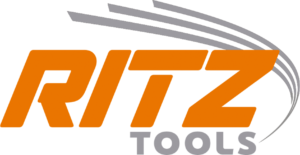In the world of electrical work, two key players stand out: the Lineman and the Electrical Contractor. Both roles play vital roles in ensuring our homes and businesses have a reliable power supply. But what sets them apart, aside from their job titles, are the electrical tools they use. In this showdown, we’ll take a closer look at the essential tools of these professionals and understand how they differ.
Lineman’s Arsenal
When it comes to the Lineman’s toolkit, one of the most iconic tools is the lineman’s pliers. These versatile pliers feature a cutting edge and gripping jaws, making them essential for cutting, gripping, and twisting wires. Linemen also rely on a variety of wrenches, particularly the adjustable wrench and the pipe wrench, to work with nuts, bolts, and pipes on utility poles.
Additionally, Linemen are known for their trusty climbing gear, including safety belts, hooks, and straps, which enable them to scale utility poles with ease. A key piece of safety equipment for Linemen is the voltage detector, which helps them identify live wires and potentially dangerous situations while working on power lines.
The Electrical Contractor’s Toolkit
On the other side of the ring, we have the Electrical Contractor, armed with a different set of tools tailored to their specific job requirements. One of their primary tools is the wire stripper, which allows them to remove insulation from electrical wires without damaging the conductor underneath. Electrical Contractors also make frequent use of fish tapes, essential for pulling wires through conduit or behind walls.
Multimeters and circuit testers are indispensable for Electrical Contractors, as they use these devices to diagnose electrical problems and ensure safe installations. Additionally, the conduit bender is a key tool for shaping metal conduit, a common method for protecting electrical wires.
Overlapping Essentials
While Linemen and Electrical Contractors have their unique tools, some items are indispensable for both professions. Safety gear, such as hard hats, gloves, and safety glasses, are a common sight in both toolkits. These protective items ensure that both Linemen and Electrical Contractors can carry out their work safely.
Another shared essential is the trusty tool belt or tool bag, helping professionals keep their tools organized and within arm’s reach. Tape measures and various types of screwdrivers are also tools that both Linemen and Electrical Contractors rely on regularly.
Transitioning from Lineman to Electrical Contractor
Some professionals in the electrical field might transition from being a Lineman to an Electrical Contractor or vice versa. In such cases, they need to adapt their toolkits to their new roles. Linemen transitioning to become Electrical Contractors may find themselves needing more diagnostic and installation tools, while Electrical Contractors moving towards a Lineman career may need to invest in climbing gear and safety equipment.
This adaptation process highlights the flexibility and skill development that electrical professionals can achieve in their careers.
Conclusion – Tools of the Trade
In the Lineman vs. Electrical Contractor showdown, it’s clear that while these two professions have unique toolkits tailored to their specific tasks, they share many essential tools and a commitment to safety. The Lineman’s pliers and climbing gear are iconic in the world of power line work, while the wire stripper and multimeter are indispensable for Electrical Contractors.
Whether you’re on the ground diagnosing electrical issues or high in the air maintaining power lines, having the right tools for the job is crucial. These tools not only make the work possible but also ensure it’s done safely and efficiently.
So, whether you’re a Lineman or an Electrical Contractor, remember that your tools are your allies in the electrical world, helping you bring power to our homes, businesses, and lives.
In conclusion, the world of electrical work may be divided into Linemen and Electrical Contractors, but it’s their tools and expertise that unite them in the mission to keep the lights on.
1. What are the must-have tools for a Lineman’s toolkit according to Ritz Tools?
- According to Ritz Tools, some essential tools for a Lineman’s toolkit include lineman’s pliers, wrenches (adjustable and pipe wrenches), climbing gear (safety belts, hooks, and straps), voltage detectors, safety equipment (hard hats, gloves, safety glasses), and tool belts or bags.
2. What specialized tools does Ritz Tools recommend for Electrical Contractors?
- Ritz Tools recommends wire strippers, fish tapes, multimeters, circuit testers, conduit benders, tape measures, and various types of screwdrivers as specialized tools for Electrical Contractors.
3. Does Ritz Tools offer tool recommendations for professionals transitioning from Lineman to Electrical Contractor roles?
- Yes, Ritz Tools can provide guidance for professionals making this transition. They may suggest adding diagnostic and installation tools to your toolkit if you’re transitioning from Lineman to Electrical Contractor, and vice versa, investing in climbing gear and safety equipment.
4. What are some safety tools and equipment that Ritz Tools emphasizes for both Linemen and Electrical Contractors?
- Ritz Tools places a strong emphasis on safety gear, including hard hats, gloves, safety glasses, and safety belts. These items are crucial for protecting professionals in both fields while they work.
5. Where can I purchase the recommended tools from Ritz Tools for Linemen and Electrical Contractors?
- Ritz Tools provides a range of electrical tools and equipment, and they can be purchased through their official website or authorized distributors. You can also check with local hardware stores or online retailers for availability.


